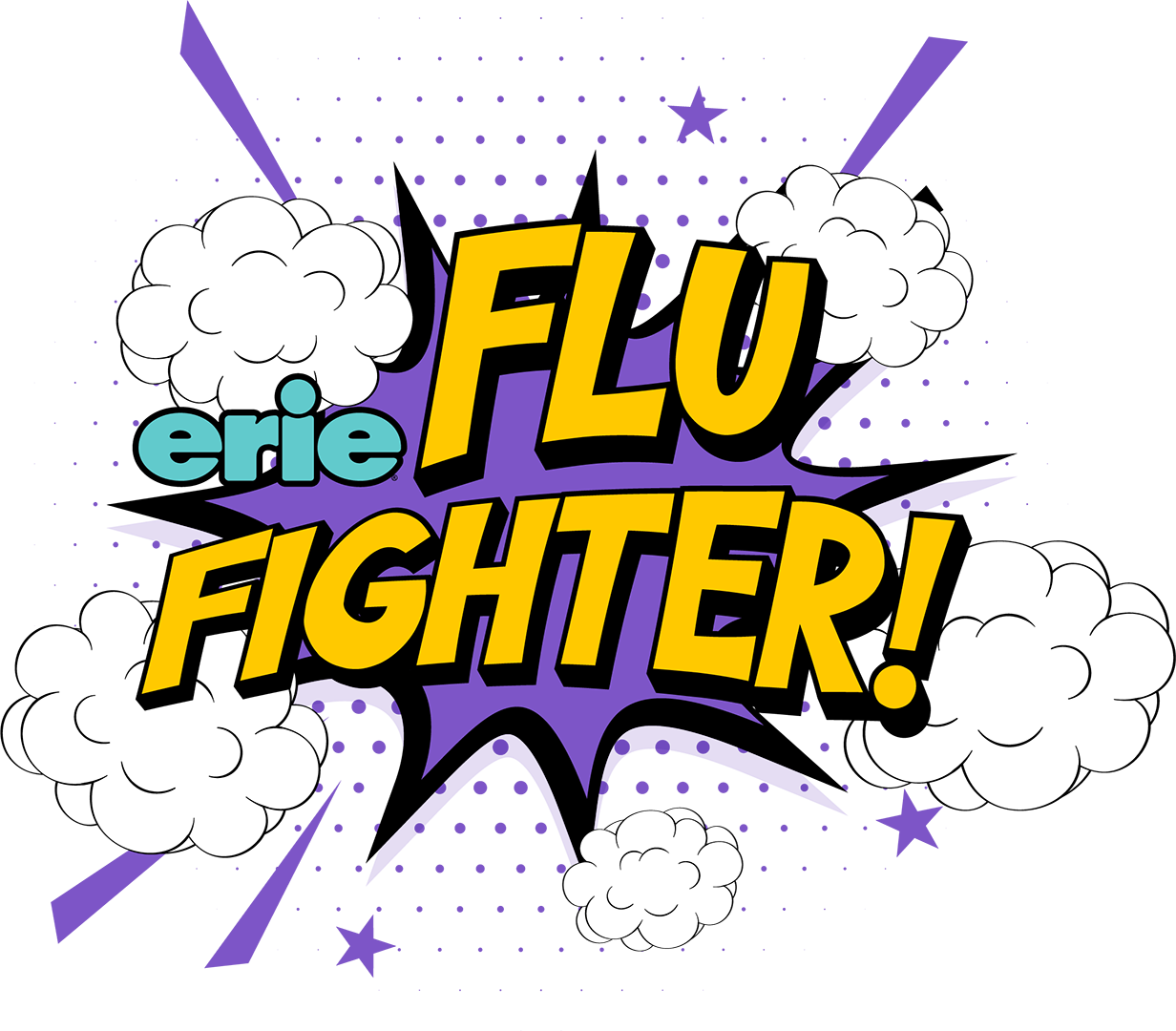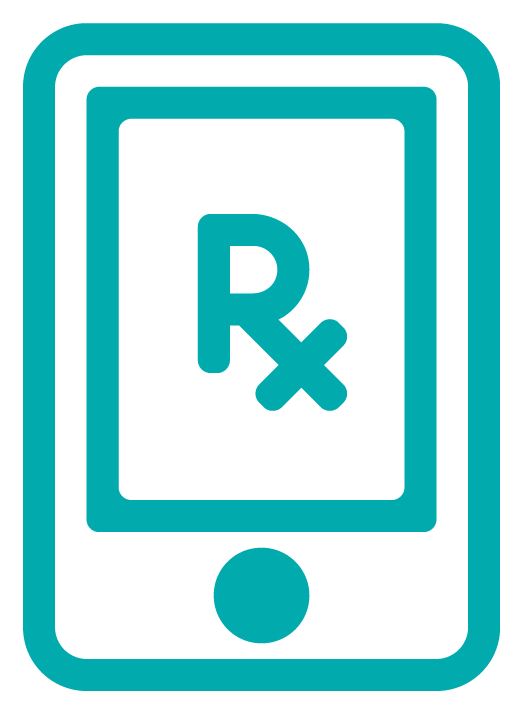There are vaccines to help prevent you and your family from getting very sick from common illnesses. Get vaccinated and get protected every fall and winter!
Resipiratory infections are infections in parts of the body involved in breathing, such as the sinuses, throat, airways or lungs.
How do respiratory infections like flu, RSV and COVID-19 spread?
These viral infections can spread
- from one person to another who is up to 6 feet away
- through air droplets from coughing, sneezing or talking
- by touching one’s own mouth, nose, or eyes
Masking and handwashing together help protect you from flu, RSV, and COVID-19!
The best way to prevent infection, or to protect yourself from severe illness if you do get sick, is to get vaccinated!
If you are sick from a viral illness, click here for some home care tips.
Learn more about
Flu Vaccines
Learn more about COVID-19 Vaccines
Learn more about
RSV Vaccines
Learn more about Pneumonia Vaccines
Tips for getting vaccinations and prescriptions at your pharmacy

Protect yourself and your family with the Flu Vaccine
The flu vaccine helps protect you from getting really sick with the flu, and keeps people out of the hospital.
- If you are older than 6 months of age and are an Erie patient, you can get your flu vaccine at an Erie health center. Call 312-666-3494 to schedule a lab appointment for a flu vaccine at Erie. (COVID-19 vaccines may also be available).
- If your child is between 6 months and 8 years of age, and is getting their first flu shot, they will need 2 doses, at least 4 weeks apart. This helps their body build strong protection.
- Teen Erie patients can also click here to chat with us Monday - Friday 1 - 5 PM to discuss getting a vaccine.
- It is safe to receive the COVID-19 vaccine and flu vaccine at the same time.
If you have insurance, you may find it more convenient to make an appointment to get a flu vaccine at your local Walgreens (ages 3 and up). Visit the Walgreens website or download the Walgreens app to make vaccine appointment at a Walgreens.
Click here to find your closest Walgreens location.
Facts about the Flu Vaccine
Flu vaccines cannot give you the flu. Flu vaccines are made with either inactivated (killed) virus or with a single protein from the flu virus.
You need the flu shot every year.
The Centers for Disease Control (CDC) recommends a yearly flu vaccine for everyone 6 months of age and older. Flu viruses change constantly, so the vaccine is reviewed each year and updated as needed, based on which flu viruses are making people sick.
Protect yourself with the COVID-19 Vaccine
The COVID-19 vaccine is the best tool we have to keep people from getting very sick and dying from COVID-19.
If you are older than 6 months of age and are an Erie patient, you can get your COVID-19 vaccine at an Erie health center. Call 312-666-3494 to schedule a lab appointment for a COVID-19 vaccine at Erie. Teen Erie patients can also click here to chat with us Monday - Friday 1 - 5 PM to discuss getting a vaccine.
- It is safe to receive the COVID-19 vaccine and flu vaccine at the same time.
- Anyone under age 18 needs consent from a parent or legal guardian to receive the COVID-19 vaccine, unless they are pregnant, parenting or emancipated.
If you have insurance, you may find it more convenient to make an appointment to get a flu vaccine at your local Walgreens (ages 3 and up). Visit the Walgreens website or download the Walgreens app to make vaccine appointment at a Walgreens. Click here to find your closest Walgreens location.
Stay up to date on the latest COVID-19 vaccine recommendations. Visit:
If you are sick from a viral illness, click here for some home care tips, and for more information on COVID-19 testing.
COVID-19 Vaccine FAQs
Request a new record through our website at your earliest convenience.
The COVID-19 vaccine development process included all the usual safety steps – none were skipped. The process was quicker than we’re used to for a few main reasons:
- Scientists and public health experts around the entire world focused their efforts on the COVID-19 vaccine at the same time. This has not happened in our lifetimes!
- Companies produced millions of vaccine doses at the same time as the clinical trials were happening – this way, we would not need to wait to actually make the vaccines at the end of the safety tests.
- Scientists didn’t have to start from scratch. They used what they learned from previous coronavirus outbreaks like SARS in 2003 and MERS in 2012 to help figure out the science behind how the COVID vaccine works.
All vaccines available now are very effective at preventing severe illness, hospitalizations and death from COVID-19.
The vaccines are effective for all genders, races and ethnicities.
Hundreds of millions of doses of COVID-19 vaccine have been given out across the United States with no more than a handful of reports of serious side effects.
The most common side effects reported are:
- Fatigue
- Headache
- Muscle or joint pain
- Fever
- Pain or swelling at the site of the injection (upper arm)
Any side effects typically go away after a day or two.
COVID-19 can be serious, and even deadly, and there is no way to know how the virus will affect you. And even if you catch the virus and don’t get very sick, you could still spread the disease to friends, family, and others around you. COVID-19 has proven to have much more serious symptoms than the side effects of the COVID-19 vaccine. The vaccine is by far the safer bet.
The only people who cannot receive the COVID-19 vaccine are people with a history of severe allergies to its ingredients.
Anyone with a history of severe allergic reaction (anaphylaxis) can still receive the vaccine but will be monitored for 15 minutes longer after vaccination to ensure they are safe.
People with mild to moderate allergies to food, the environment or medications are still highly encouraged to receive the COVID-19 vaccine. If you have further questions, talk to your healthcare provider.
Yes! The CDC recommends the COVID-19 vaccine for people who are pregnant and breastfeeding.
There is currently no evidence that any vaccines, including COVID-19 vaccines, cause fertility problems. If you are trying to become pregnant, you do not need to avoid pregnancy after receiving a COVID-19 vaccine.
Yes, you should. After you have recovered from COVID-19, scientists do not yet know how long you are immune from catching COVID-19 again. The vaccine will be your best protection.
No. Erie provides all of our care, including the COVID-19 vaccine when it is available, regardless of a person’s immigration status.
It isn’t true that only older adults and people with pre-existing conditions are at risk for getting really sick from COVID. As more and more older adults become fully vaccinated against COVID-19, the virus is still mutating and spreading rapidly among those who are not yet vaccinated – including young people.
To protect your own health, and the health of your friends and family, it is important that you don’t pass up vaccination. The COVID-19 vaccine is the best tool we have to keep people from getting very sick and dying from COVID-19.
The RSV Vaccine
RSV is a respiratory virus that, in some cases, can be particularly serious for infants. In fact, RSV is the leading cause of hospitalization for infants in the US. Good news: there is a new vaccine to help prevent RSV infection! Protect your baby this fall and winter.
The RSV shot helps protect pregnant women, elderly and infants from getting really sick and keeps people out of the hospital.
- Erie strongly recommends that any baby currently younger than 8 months of age get vaccinated against RSV. Additionally, some babies age 8 – 20 months may also be eligible for the RSV vaccine, if they are at high risk for severe illness.
- Erie also recommends women who are pregnant get the RSV vaccine (Abrysvo) to protect their baby once they are born – talk to your provider about if this option is available to you while you are pregnant.
- Talk to your provider about the RSV vaccine at your next visit.
Stay up to date on current RSV information:
- CDC RSV resource for parents: click here
- Illinois American Academy of Pediatrics RSV Resource Parents: click here
Funding provided in part by the Illinois Department of Public Health.
Financiamiento proporcionado en parte por el Departamento de Salud Pública de Illinois.
Pneumonia Vaccines
Pneumonia is a respiratory disease that is caused by bacteria (which is different than viral illnesses like Flu, COVID-19 and RSV). The bacteria is spread from person-to-person through direct contact with the bacteria, like being face-to-face with someone who is sick and coughing or sneezing.
Pneumonia infections can look different from person-to-person but often look similar to other respiratory infections. Symptoms may include
- fever, chills
- cough
- chest pain
- difficulty breathing
Pneumonia can affect anyone.
- It is most common in young children and older adults.
- Older adults are at the greatest risk of serious illness, hospitalization, and death.
The Centers for Disease Control and Prevention recommends pneumococcal vaccination for
- all children under 5 years old
- all adults 65 and older
- some people between ages 5-64 who are at an increased risk for pneumococcal disease. This increase risk includes people with diabetes, chronic lung conditions such as asthma, immuno-compromising conditions, and people who smoke.
There are different kinds of vaccines to help prevent pneumococcal infection.
The vaccines you may see or hear the most are Pneumovax 23, Prevnar 15, and Prevnar 20. Your provider can help know if vaccination is recommended for you, and which vaccine is right for you or your young children. The good news is that these vaccines are very good at preventing pneumococcal infection.
Most adults only need to get the pneumonia vaccine once.
For older adults, the pneumonia vaccine is available at pharmacies (like Walgreens) without a prescription, or you can talk to your healthcare provider about options.
It is safe to get the pneumonia vaccine at the same time as other recommended vaccines, such as flu, COVID-19, or RSV.
Click here for more pneumonia vaccine information from the CDC.
Tips for getting prescriptions and
vaccinations at your pharmacy
Getting a vaccine from your pharmacy
 You can get many common vaccines like flu, COVID-19, RSV, pneumonia, and shingles vaccines at pharmacies like Walgreens, CVS, Jewel Osco, Walmart, or your local pharmacy. If your provider gives you a prescription for a vaccine, the tips for filling prescriptions may help too.
You can get many common vaccines like flu, COVID-19, RSV, pneumonia, and shingles vaccines at pharmacies like Walgreens, CVS, Jewel Osco, Walmart, or your local pharmacy. If your provider gives you a prescription for a vaccine, the tips for filling prescriptions may help too.
To avoid long wait times, and to be sure the pharmacy has the vaccine in stock, make an appointment first. You can make a vaccine appointment:
- On the pharmacy's website, like walgreens.com or cvs.com
- In the pharmacy's app, if they have one. Pharmacy apps can be downloaded for free from the app store on your phone or tablet.
- Some pharmacies might help you over the phone. Most prefer you make the appointment online or in the app.
Tips
- If no appointments are available in your area, wait a few days and try again. Your pharmacy may have more vaccines available soon.
- You can find out if your pharmacy, or one nearby has the vaccines that you want by checking on their website, or their app, if they have one.
- For children between 3 - 5 years old, the location options will be more limited.
- Pharmacies do not vaccinate any children under age 3.
 Getting your prescriptions filled or refilled
Getting your prescriptions filled or refilled
- If your provider wrote a prescription today, it will be sent to the pharmacy you have given to Erie.
- Wait at least 2 hours before you try to pick it up—unless the pharmacy messages you to say it is ready sooner.
- To confirm when a prescription will be ready for pick up, please call the pharmacy directly.
- If you have a problem with your prescription at the pharmacy counter, you or the pharmacist can call Erie at 312-666-3494 and follow the prompts for prescription refills.
- Erie's pharmacy team regular hours of operations are Monday – Friday, 9 AM - 5 PM.
- To refill a prescription, first talk to your pharmacy.
- If the pharmacy says that you need to talk to your provider, you can message your provider in your Erie MyChart account. Please allow a few business days to process your request.
- Please do not use Erie MyChart for time-sensitive requests. If you have an urgent need, and the pharmacy is unable to help, call Erie.
Download the free app for your pharmacy like Walgreens.
The Walgreens app is available in the Google Play store and the Apple App store. It is an easy way to communicate with your pharmacy, to track and ask your pharmacy for prescription refills and to make vaccine appointments.
Call (312) 666-3494 to schedule an appointment.
For our suburban locations call (847) 666-3494

Erie Family Health Centers received back-to-back 2024 and 2025 USA Today Top Workplaces Awards and Top Workplaces Purpose and Values Awards, and we received the 2024 Healthcare Industry Award. These awards recognize that our shared belief in Erie's mission and values drives everything we do.
